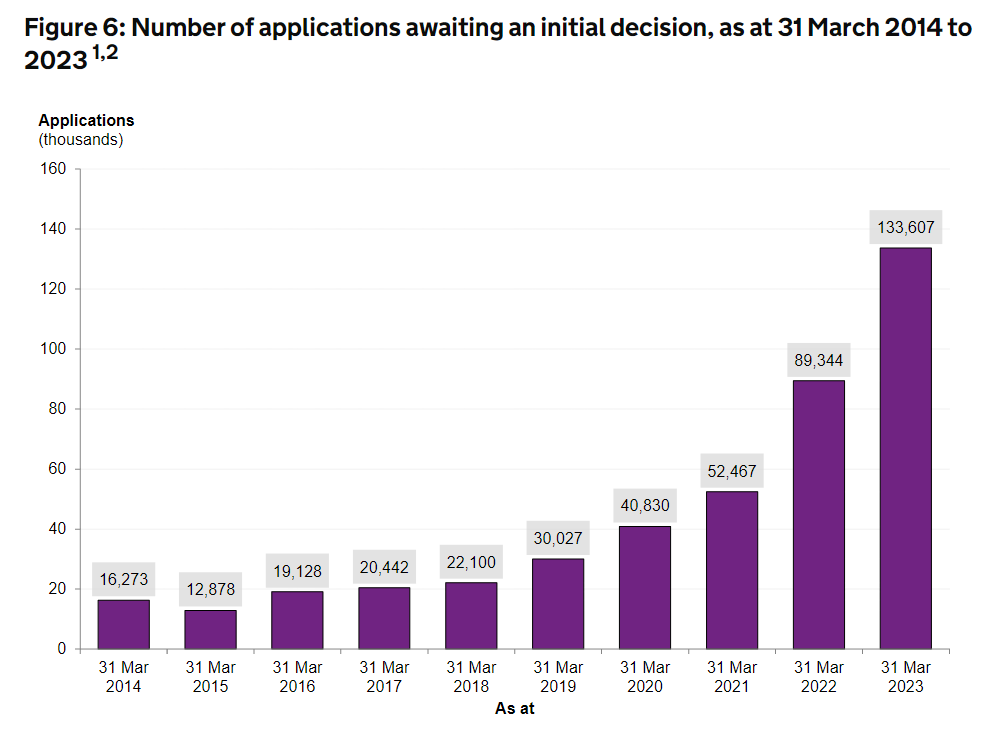
Home Office staff will not “just sit back and take” the Rwanda deal and new small boats bill, and may strike if forced to implement measures they believe are unlawful.
A union representing frontline workers receiving migrants crossing the English Channel and deciding their asylum claims says internal rows over the government’s plans could escalate into an industrial dispute.
It would be the latest in a string of strikes by civil servants, with 130,000 people walking out of 132 government departments last month over pay and conditions.
Home Office workers have already voiced their opposition to Suella Braverman’s aim of detaining and deporting anyone arriving in a dinghy, regardless of the merits of their claims, in a series of staff meetings and angry posts on internal message boards.
“You can’t do this kind of s*** and still pretend that you are legal,” one asylum official previously told The Independent. “Being elected doesn’t give you the right to break the law.”
The Public and Commercial Services (PCS) union, which represents almost 16,000 staff across different Home Office departments and Border Force, said they were buckling under “constant downwards political pressure”, “intolerable” working conditions and fear of being forced to break the law.
Head of bargaining Paul O’Connor said the union had already joined legal action against the Rwanda deal, and was “ruling absolutely nothing out in terms of responses to look after the welfare of our members”.
“The government is fighting a losing battle, not just on the policy issue itself but with its own workforce who they’re going to task with implementing it,” he told The Independent.
“There will be no stomach amongst our members for implementing the Rwanda deal and Illegal Migration Bill, and they will inevitably come to their trade union to see if there is recourse to stop it happening.
“If any litigation fails, they will want to explore with us whether there’s an industrial solution.”
Mr O’Connor said the PCS could ballot for strike if opposition to the government’s plans escalates into a trade dispute.
There was widespread unrest inside the Home Office over Ms Braverman’s admission that the bill may violate human rights in March, and the UN Refugee Agency’s warning that the plans are a “clear breach” of international law.
Civil servants piling into an internal question-and-answer session said they were “embarrassed and ashamed”, with one demanding: “At what point are senior leadership in the Home Office willing to state that breaking international law is not consistent with the civil service code or our values, and that we as staff should not be expected to do so?”
Mr O’Connor recalled an all-staff conference call shortly after the announcement of the Rwanda deal in April 2022, where civil servants were “up in arms” and telling permanent secretary Matthew Rycroft they were “disgusted”.
He said staff were also “sick of being used as a political football”, amid frequent accusations from senior Tories that they are part of a politically motivated “blob” obstructing government policy.
“Civil servants are not the type of people who go around plotting in dark corners to bring down administrations,” Mr O’Connor added.

“What they are dispensing to ministers is policy advice, and outlining the consequences of certain courses of action.
“What is happening in reality is that ministers don’t like the advice that they’re getting and are therefore trying to portray that as some kind of nefarious plot … they just need to look in the mirror at their own ineptitude, that's what's at the root of it.”
Practical questions remain over how all small boat migrants could be detained and deported, when there is insufficient immigration detention capacity and the Rwanda deal is not operational.
The Independent has seen internal communications from Home Office leaders telling civil servants they should work to make the bill “a success”, warning: “Any new policy is only ever as good as its implementation.”
Mr O’Connor accused the Home Office of “pouring good money after bad trying to combat the small boat crossings”, arguing that the continued rise in small boat crossings showed that years of attempted deterrents and punitive policies were not working.

The PCS has backed a “safe passage” policy that it argues would cut demand for people smuggling by allowing asylum seekers to apply for UK visas using an online screening process.
Mr O’Connor said the “environment of hostility” against asylum seekers created by the government was also damaging civil servants’ mental health.
“It makes their working lives extremely unpalatable,” he added. “They feel if they were put in a position where they had to carry out an act that was subsequently proved to be unlawful, they themselves might be open to prosecution.”
The PCS says there is also an “acute lack of resources” and staff within the Home Office, arguing that it is struggling with recruitment and retention partly because of “poverty pay”.
A Home Office spokesperson said: “Our staff work tirelessly to deliver ground-breaking policies, such as the Illegal Migration Bill. This will reform our immigration system and stop the boats, while still remaining party to the ECHR.
“We have always maintained that the UK and Rwanda Migration and Economic Development Partnership is lawful, including complying with the Refugee Convention, and last year the High Court upheld this. We stand ready to continue to defend the policy against legal challenge.”







